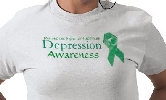|
|
 Acne (1,500) Acne (1,500)
 Addictions (1,500) Addictions (1,500)
 Advice (1,500) Advice (1,500)
 Allergies (1,092) Allergies (1,092)
 Alternative Medicine (1,500) Alternative Medicine (1,500)
 Anti Aging (1,500) Anti Aging (1,500)
 Breakup (1,500) Breakup (1,500)
 Cancer (1,499) Cancer (1,499)
 Dental Care (1,500) Dental Care (1,500)
 Disabilities (1,500) Disabilities (1,500)
 Divorce (1,500) Divorce (1,500)
 Elderly Care (1,498) Elderly Care (1,498)
 Goal Setting (1,500) Goal Setting (1,500)
 Hair Loss (1,500) Hair Loss (1,500)
 Health and Safety (1,497) Health and Safety (1,497)
 Hearing (1,500) Hearing (1,500)
 Law of Attraction (1,499) Law of Attraction (1,499)
 Marriage (1,500) Marriage (1,500)
 Medicine (1,497) Medicine (1,497)
 Meditation (1,499) Meditation (1,499)
 Men's Health (1,500) Men's Health (1,500)
 Mental Health (1,500) Mental Health (1,500)
 Motivational (1,500) Motivational (1,500)
 Nutrition (1,495) Nutrition (1,495)
 Personal Injury (1,499) Personal Injury (1,499)
 Plastic Surgeries (1,500) Plastic Surgeries (1,500)
 Pregnancy (1,496) Pregnancy (1,496)
 Psychology (1,500) Psychology (1,500)
 Public Speaking (1,500) Public Speaking (1,500)
 Quit Smoking (1,500) Quit Smoking (1,500)
 Religion (1,499) Religion (1,499)
 Self Help (1,500) Self Help (1,500)
 Skin Care (1,500) Skin Care (1,500)
 Sleep (1,500) Sleep (1,500)
 Stress Management (1,500) Stress Management (1,500)
 Teenagers (1,492) Teenagers (1,492)
 Time Management (1,500) Time Management (1,500)
 Weddings (1,500) Weddings (1,500)
 Wellness (1,500) Wellness (1,500)
 Women's Health (1,500) Women's Health (1,500)
 Women's Issues (1,500) Women's Issues (1,500)
|
Relapse prevention can have a great impact on your recovery efforts.
There are a couple different schools of thought when it comes to relapse prevention in treating addiction.
1. One school of thought says that 12 step programs are the best form of relapse prevention.
The idea here is that if you fully immerse yourself into either AA or NA, and honestly work the program to the best of your ability, then you are covered as far as relapse prevention goes. Certainly this approach has worked for many people, as they are enjoying long term sobriety in a twelve step program without any real thought as to how they need to "prevent relapse." Instead, they are going to meetings, helping other addicts and alcoholics, and teaming up with a sponsor in order to work a recovery program.
This is not necessarily good or bad, it's simply one method of relapse prevention. The degree of success with such an approach will likely depend on how willing a person is to fully devote their life to working the 12 step program. In other words, if you want success in this fashion, you can't just hang around at a few AA meetings and expect your life to change. Instead, you must diligently work the program, the steps, and fully immerse yourself into the 12 step model.
2. Another school of thought says that cognitive therapies make the best relapse prevention strategies.
An example of cognitive therapy would be if a counselor or a therapist tried to convince a recovering addict to change their thinking in some way. For example, they might try RET, or Rational Emotive Therapy, in order to get the client to overcome their irrational and limiting belief structures that ultimately cause them to drink or use drugs. Another example might simply to try using positive thinking or affirmations in order to overcome addiction or to maintain sobriety.
Part of the problem with cognitive therapies is that they assume we can change our thinking patterns at the drop of a hat. This is not how the addictive mind works--unfortunately our thought patterns are heavily ingrained and can usually only be changed after we have altered our lifestyle and our behaviors for some period of time. In other words, we can't really change our thinking patterns without first changing our living patterns to match. This is one of the major limitations of cognitive therapy when it comes to relapse prevention.
3. Another school of thought says that behavioral therapies make the best relapse prevention strategies.
The idea here is to obviously change our behavior in order to prevent future relapses. The same pitfall seems to be true with behavioral approaches as it is with cognitive therapy. If we are still living in active addiction, then briefly changing our surface level behavior isn't going to deeply affect our addiction or our recovery efforts. The problem with changing our behavior is that it is just a small portion of the overall problem. Our thinking, our emotional responses, our lifestyle, and our relationships are all damaged and intertwined into the mess that we refer to as addiction. Trying to isolate an approach like "behavior modification" always falls short because addiction is such a necessarily complex problem.
So in order to effectively treat addiction and find a viable, long-term relapse prevention strategy, what exactly do we need to do? The answer to that is complicated because addiction is complicated. Essentially the answer lies in building a creative new life in recovery after leaving the drugs and the alcohol. Passionate living while sober is the only sustainable method of relapse prevention.
|
|
|



